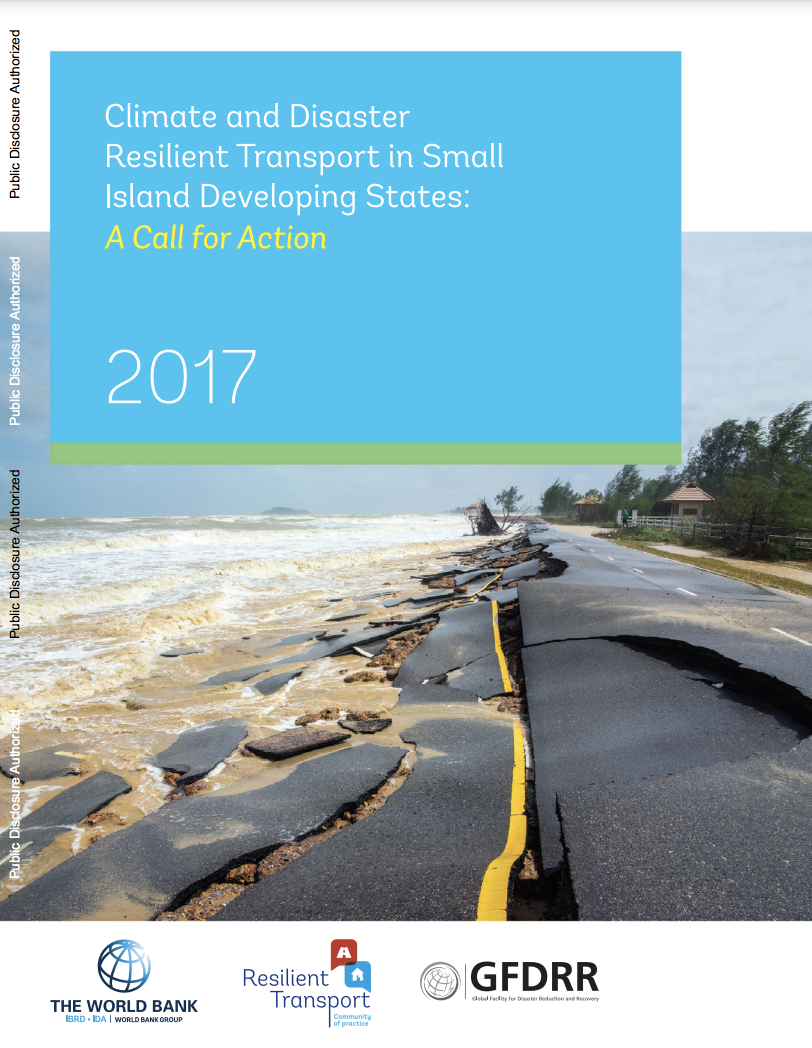Small Island Developing States (SIDS) are a group of countries located across the world in the Caribbean, Pacific, Africa, and Indian Ocean regions. They are all small in size, sparsely populated and geographically isolated, and their small economies are typically based on tourism, fisheries, agriculture, and small-scale manufacturing activities. SIDS are among the most exposed and vulnerable countries to natural disasters in the world, and climate change is expected to exacerbate future risks, threatening development progress. Because of their location, small size, and topography, SIDS are exposed to severe hazards, including cyclones, extreme winds, storms, earthquakes, tsunamis, and volcanic eruptions. This report proposes solutions to integrate climate and disaster risk considerations in transport infrastructure lifecycle management and, in this way, enhance the resilience of transport systems. The case studies presented in this report can be replicated by tailoring best practices to specific country contexts. Interventions can be made by life cycle component, or integrated across the transport infrastructure life cycle. In Tuvalu for instance, after Cyclone Pam in 2015 isolated the island, the Tuvalu Aviation Investment Project revised infrastructure design specifications to ensure resilience of the airport to future events, including also various measures to improve disaster preparedness and response. This report also proposes a path forward for replicating best practices and deploying resilient transport infrastructure in SIDS. Consisting of four components, the path leverages existing experiences in SIDS to coalesce and scale-up donor support to address financial gaps while reinforcing country systems and delivering scale with reduced administrative burden. Components of this path forward specifically address country-specific needs assessments and transition plans, implementation of resilience measures and transport asset management systems, avenues for local capacity building and knowledge exchange, and fundraising and reassessing capital needs for continued enhancement of transport systems resilience.
Climate and Disaster Resilient Transport in Small Island Developing States: A Call for Action
November 15, 2017 Read this publication

